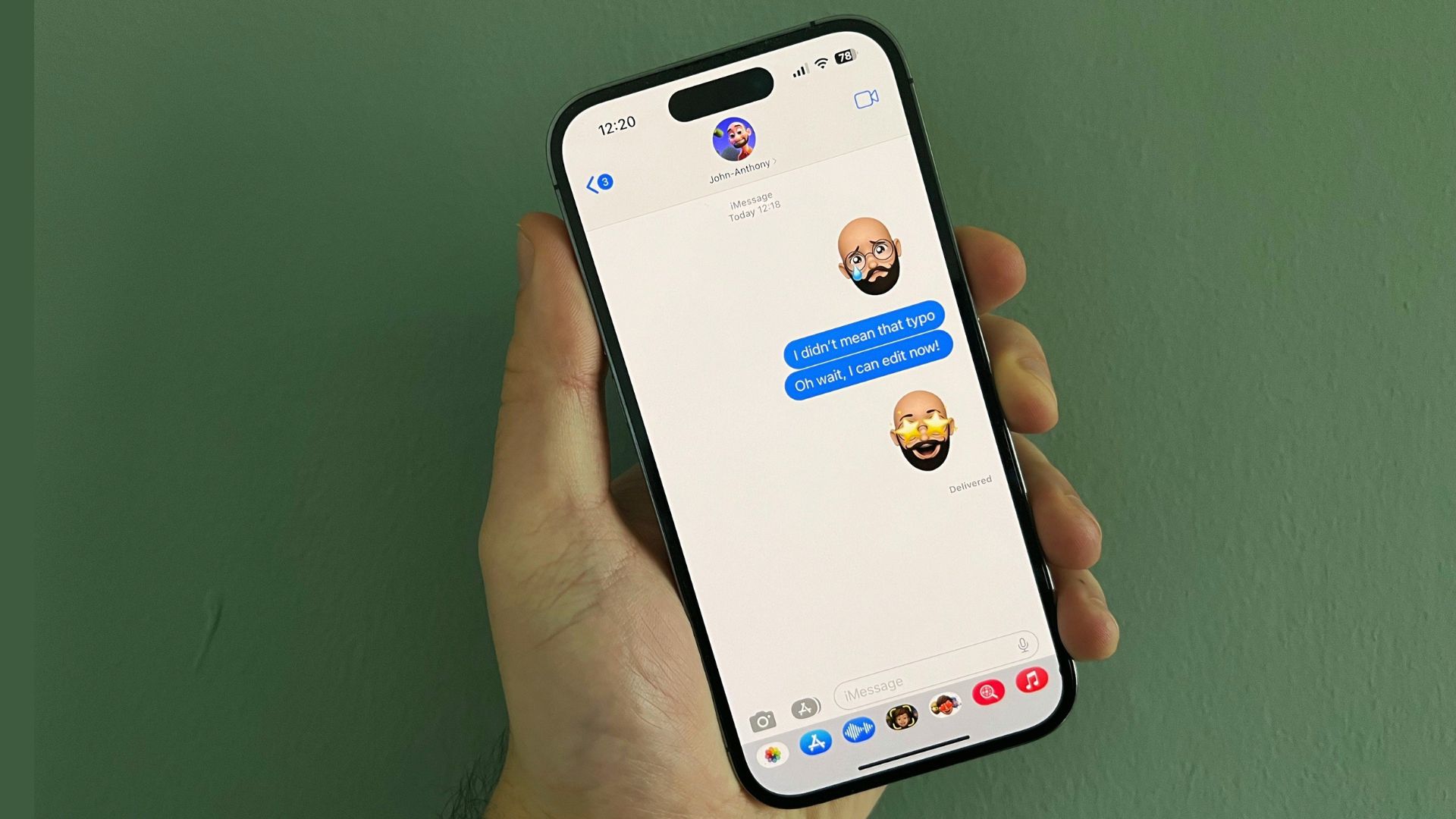The EU might not force iMessage to work with other messaging apps after all, here's why
Apple's iMessage might have had a reprieve.

Apple's iMessage might be about to get a Digital Markets Act reprieve according to a new report. The European Commission is in the middle of a five-month consultation designed to try and figure out whether iMessage is used widely enough to designate it a 'gatekeeper,' a move that would allow the EC to force Apple to do some things it really doesn't want to do — like make iMessage interoperable with competing services like WhatsApp.
For its part, WhatsApp is already in the process of opening its doors to competing platforms as Meta deals with its own European problems. But Apple sees iMessage as a key part of the iPhone's list of features and benefits, and it doesn't want to bring it to other platforms. By opening iMessage up, Apple would open the door to iMessage on Android in a way that is currently simply not possible no matter how much companies like Nothing and Bleeper trying to hack their way to making that the case.
But this might all be a moot point, with a new report claiming that the EC may have deemed iMessage to not be important enough to warrant any action, specifically in the business world.
An 'important gateway'
Bloomberg reports that Apple's iMessage might not be deemed an "important gateway" in terms of the DMA, with the watchdog having "tentatively concluded that it isn’t popular enough with business users to warrant being hit by the regulation." The report goes on to say that the belief is that iMessage isn't important enough for business users to make it fall under the DMA's umbrella. If that's the case, iMessage will get a reprieve.
This all comes after the European Commission decided in September that some companies including Apple do have a case to answer. To that end, the App Store remains an issue for Apple with sideloading still on the horizon. Meta, Microsoft, Bytedance, and others are also affected by September's unveiling of so-called gatekeepers, but iMessage was one of a handful of cases that were deemed worthy of additional consideration.
With February still being the date for a formal decision on iMessage it's possible that the situation could change before anything is made public. But some will argue that if WhatsApp and others are to be forced into interoperability, iMessage should as well. Apple would disagree, of course, and so may the EC after all this.
The RCS situation
Apple recently announced that it is bringing RCS to the iPhone, a feature that allows for some of the iMessage-like features to work across platforms. Android already supports RCS and its iPhone implementation will fix some of the SMS-based issues sending messages between iPhones and Android phones currently presents. The RCS support won't come to the iPhone until an as-yet-undetermined date in 2024, however.
Master your iPhone in minutes
iMore offers spot-on advice and guidance from our team of experts, with decades of Apple device experience to lean on. Learn more with iMore!
It isn't clear if the move to bring RCS to the iPhone will have, or indeed has had any bearing on the iMessage DMA situation but it's a possibility. RCS might not bring iMessage to Android, but it does bring new, rich cross-platform messaging to the iPhone's Messages app which may ultimately have the same end result for users. It might also mean that demand for third-party cross-platform apps like Signal, Telegram, and the aforementioned WhatsApp might also wane but time will tell in that regard.
For now, just like Apple, we wait for the European Commission's February announcement to see what will come of iMessage and whether we will one day see blue bubbles in WhatsApp chats. I suggest not, but we only have a couple of months left before we find out.
More from iMore

Oliver Haslam has written about Apple and the wider technology business for more than a decade with bylines on How-To Geek, PC Mag, iDownloadBlog, and many more. He has also been published in print for Macworld, including cover stories. At iMore, Oliver is involved in daily news coverage and, not being short of opinions, has been known to 'explain' those thoughts in more detail, too. Having grown up using PCs and spending far too much money on graphics card and flashy RAM, Oliver switched to the Mac with a G5 iMac and hasn't looked back. Since then he's seen the growth of the smartphone world, backed by iPhone, and new product categories come and go. Current expertise includes iOS, macOS, streaming services, and pretty much anything that has a battery or plugs into a wall. Oliver also covers mobile gaming for iMore, with Apple Arcade a particular focus. He's been gaming since the Atari 2600 days and still struggles to comprehend the fact he can play console quality titles on his pocket computer.
